Bouncing back from a business credit catastrophe can begin by taking the simple step of getting a secured credit card.
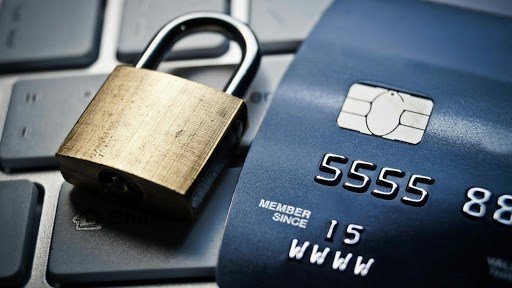
You’ve been working hard to grow your business. Unfortunately, like many small or start-up companies, you but may have run into a brick wall when you realize that you need financing, but can’t get it at a reasonable rate -- or at all -- because of your company’s bad credit history. That may include a spotty payment history, a low credit score, or lack of collateral to back a loan. The good news is that thanks to secured credit cards, your company has an option to establish itself as someone worthy of bank loans by being able to demonstrate that your company can be trusted to pay back debt in a timely manner.
Common Causes of Bad Credit

Limited or Inconsistent Cash Flow
You’re making sales, but not enough to cover all your expenses or you’re crushing it in Q4 but the rest of the year, sales are flat. In the meantime, the bills keep coming in.
Not Using a Budget
It’s easy to get in financial trouble fast if you don’t know what you’re expenses are. Figuring out upfront what you expect to have to spend to keep the lights on every month is essential.
No Preparation for Unforeseen Expenses
Everything is going along fine and then your laptop dies. The furnace in your workshop blows up. Or the cost of energy drinks to stock your cool company kitchen suddenly skyrockets. If you don’t have at least a small cash cushion set aside, you could be in instant trouble if something happens.
Not Raising Enough Capital
While it’s tempting just to dive in on a venture without raising much money, it isn’t wise. If you have cash upfront to pay for things like office equipment, furniture, and initial inventory, you won’t have to take the risk of financing the cost.
Too Much Debt
See “not raising enough capital” above. Taking out loans to start your business immediately puts you in the hole. Carrying a lot of debt once you’re established eats into your profits and can prevent you from scaling.
Neglecting Necessary Reporting
Like not having a budget, to begin with, not tracking sales, cost of goods, and expenses can lead you into a blind alley of financial woes.
Poor Tax Compliance
Neglecting to charge sales tax, miscalculating quarterly estimated taxes, or failing to file on time can financially catch up to you in very damaging ways. And while you can sometimes put off creditors, you can’t put off the government.
Not Paying Bills on Time
Whether you’re delaying because you’re waiting for an invoice to be paid to have the cash to pay on time, or you’re just not on top of your accounts payable schedule, late or missed payments can trigger extra charges and damage your credit score.
Where do you go when you’re in the hole?
A secured credit card can help you establish business credit with a positive payment history and show lenders your company is a responsible credit card user. That distinction means can get better rates and terms to finance your business.
What is a Secured Credit Card?

Secured business credit cards are specially designed for individuals or companies who don’t have a very good credit score or who have a short credit history. Typically the potential cardholder pays a refundable deposit that protects the card issuer in case of default. In most cases, the issuer will require you to link your business bank checking or savings account so the deposit can be deducted directly. However, a few will allow you to send those funds to them after approval.
In return for the deposit, the secured business credit card issuer assumes the elevated risk and allows the cardholder to use the card responsibly to pay for business expenses which can help them establish credit and improve their credit score. If you manage the card properly which means paying your bills on time, you can get the security deposit back.
How Does a Secured Credit Card Work?
Like any regular credit card, your company can use a secured business credit card to make purchases or pay bills when cash flow is tight. Cards that report your payment history to the major business credit card bureaus over a period of time can help boost your credit scores and build your credit history providing you consistently pay on time.
Pay an Annual Fee or Get it Free.
Although there are secured business credit cards out there that have a $0 annual fee, many do require you to pay up to $99 or so a year to use the card, which means you’ll need to include that in your company budget each year.
Enjoy Some Surprising Cardholder Benefits
In some cases, your secured credit card may allow you to access balance transfers to pay off other cards or debt and let you get a cash advance at ATMs. But beware. These advances typically have a higher APR or other fees associated with the privilege.
Some secured credit cards even let you earn travel cash back on qualified purchases which is a nice benefit you might not expect from a card primarily designed to get your credit back on track.
Pay More. Spend Less.
If you pay your monthly bill on time (ideally the total amount due rather than just the minimum), you can build credit over time, which may help you qualify for an unsecured credit card. Keep in mind, though, that a small credit line makes it easy to hurt your credit scores with high “utilization” or “debt usage.”
That means if you put a lot of purchases on your card and you consistently bump up against your credit limit when that information is reported to the credit reporting agencies your credit scores take a hit. To be safe, try to keep your balances below 20% of your credit limit. So, for example, if the limit on your secured business credit card is $1,000 aim to carry a balance of less than $200.
The Plusses and Minuses of Using a Secured Credit Card
A secured credit card isn’t for everyone. Individuals and businesses who have good credit have a wide range of options and don’t even have to consider getting a card that’s secured. But they can be a lifesaver for people and companies who are struggling financially. The following is a list of the pros and cons of having a secured credit card:
Pros

Cons
How Much of a Security Deposit Do Secured Credit Cards Require?
If you get a secured credit card that requires that you pay a security deposit to the issuer, they will typically make that easy to do by allowing you to link your bank account. But be aware that some will require you to open a bank account with the financial institution that is issuing the card
The amount you’ll have to put down as a security deposit will vary from lender to lender. Most issuers ask for at least $500, but there are a few with lower requirements. For those who have bad credit getting a hold of $500 in cash can be a challenge. But even if scraping together the money is challenging, do it. The time you take and the investment you make now will pay off in a better credit score and financial opportunities in the future.
What’s the Typical Credit Limit on Secured Credit Cards?
Usually, the credit limit will be equal to or a percent more (or less) than the required cash deposit. This means that the credit card issuer is lowering its overall risk by securing funds ahead of time. For example, if you want a card with a $500 credit limit and are approved, you will likely have to pay a security deposit of $500, or close to that amount.
It’s important to note that a secured credit card is different than a prepaid credit card. With a prepaid credit card, your deposit is used against the balance you accrue. Which means you are, in effect borrowing from yourself.
With a secured credit card, your deposit is will be held separately. You will be required to pay your bill in full without drawing on the money you paid upfront.
What Happens to the Deposit for a Secured Credit Card?
Like any security deposit, you might pay for an apartment or equipment rental, the money you put down for a secured credit card will be kept in an account that is separate from your charge account.. You’ll get it back when you fulfill the legal requirements of the card. Those requirements include making regular payments on your account and eventually reaching a zero balance.
Exactly when you’ll get your deposit back varies from one credit card issuer to another, but in all circumstances, your account will have to be in good standing for a period of time. Providing that your account is in good standing, here are the two most common scenarios that will result in you getting your security deposit back from a secured credit card lender.
1. You close your account.
First of all, closing your account is not as simple as just saying, “I’m done; let’s close this down.” Your account must be in good standing and carry a zero balance at the time of closing. You’ll have to follow the instructions provided by your business credit card company for closing your account and receiving your deposit back.
2. You “graduate” to an unsecured credit card account.
The other, and best scenario is where you successfully reduce your perceived risk by creating a history of on-time payments and manageable balances. In this case, the lender may decide to convert your account from a secured credit card account to an unsecured card and to return your deposit without requiring you to close the account.
They may not do this automatically, so keep track of your credit score. When it rises and you’ve built up a history of paying on time, ask your card issuer whether they will convert your card to an unsecured business credit card. The lender will check your personal and/or business credit report with one or more of the major credit bureaus, and make a decision based on what it finds. If they do convert your secured credit card to an unsecured card, you will have taken a major step toward establishing a firmer financial foothold for your company.
Do Secured Credit Cards Come with Any Risks?

Although the application and approval process for a secured credit card is a little different than that of a regular unsecured card, most everything else, including credit reporting, fees, and APRS is pretty much the same.
Like many regular credit cards, secured credit cards often have an annual fee associated with them. Even though rates vary drastically from lender to lender, because the person or company applying is seen as a risky prospect, the APR can be quite a bit higher than for a regular card. While the introductory APR may be low (or even zero), watch out for cards that drastically raise your rates after the introductory period. If you miss a payment, you can quickly get into a dangerously expensive place.
Not only that, but if you only pay the minimum payment, the interest charges can really add up and make it difficult to pay your monthly bill. That can set off a domino effect of financial problems because if you can’t pay your monthly bill on time, you’ll have to pay late fees that will add to your total balance. If you can’t pay your debts, you may default and then your account may go into collections. That will further damage your credit score because your late payments and default status will be reported to all credit bureaus.
For that reason alone, it is absolutely essential that you aren’t overly optimistic about your ability to repay your debts. it would be a smart move to keep your total balance low and to pay it in full at the end of every billing cycle. To stay out of trouble, keep an eye on your credit limit and always be aware of how close you are to hitting it. Then be willing to adjust your business spending accordingly.
Finally, If you are in a seriously deep financial hole and feel like even making the minimum payment might be hard to do you might want to hold off on getting a secured credit card until things get better. That’s because defaulting on a secured credit card will put you in worse shape than not having one at all.
How to Choose the Best Secured Credit Card for Your Business
The fact is, there are not a lot of issuers who offer secured business credit cards. Consequently, your choices will be more limited than if you were searching for an unsecured credit card. The good news is that you won’t be overwhelmed when comparing the features and benefits of each card.

The best place to start is to first get a hold of your personal and business credit scores through a free service to get a good idea of what kind of secured credit card you can actually qualify for.
Secondly, determining which secured credit card will be best for your business will depend on which financial and reward features are most important to you. Among the considerations are:
Are You Okay with Paying Annual Fees?
You might be surprised to learn that some secured business cards charge no annual fees. If saving money is most important to you, that may be the way to go. On the other hand, secured credit cards that charge an annual fee often come with the opportunity to enjoy the kind of benefits that regular credit cards offer.
Do You Want to Earn Travel Rewards or Cash Back?
Secured credit cards that charge an annual fee often offer the chance to earn travel rewards or cashback on purchases. If those benefits are priorities for you, paying an annual fee may be worth it.
How High of an APR Are You Willing to Pay?
APRs for secured credit cards are typically higher than those for regular cards so pay attention to what they are charging. . As with any card, the APR on purchases will likely be lower than for cash advance or balance transfer offers. Take this into account, since interest charges for carrying a balance can really add up.
Which Banks Offer Secured Business Credit Cards?
Although choices are more limited for secured credit cards, here ere are a few issuers that offer them.
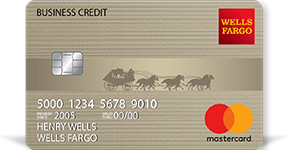
Here’s what you get:
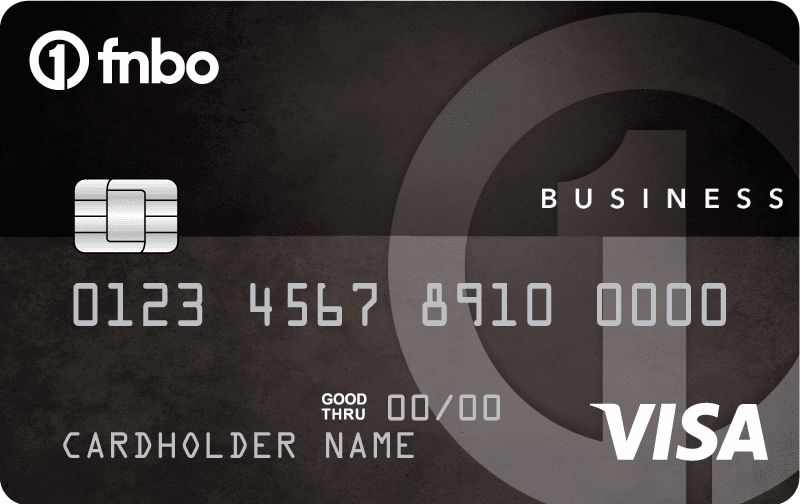
Here’s what you get:
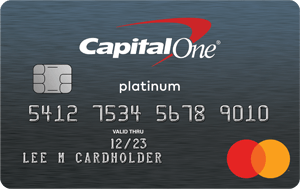
Here’s what you get:
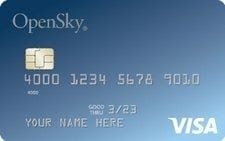
Here’s what you get:
What Does “No Credit Check Required” Actually Mean?
What it doesn’t mean is that your approval for a secured credit card isn’t 100% guaranteed. In order to qualify, you'll still need to meet certain requirements. For example, you’ll need to:
Overall, though,” no credit check required” cards are relatively easy to get approved for. And if you’ve become discouraged by a long line of rejections already, the lack of a credit check might make a card like this a compelling choice.
Alternatives to Secured Credit Cards for Business

If your credit isn’t stellar but not horrible and you don’t absolutely need a secured business credit card, there are other business financing options that can help you access financing and/or build business credit.
Vendor Accounts
Credit cards aren’t the only way to go. Another option to purchase the products you need to run your business and build your credit is through vendor or supplier credit or “tradelines”. Many vendors like those selling office supplies often offer credit directly through them. They may issue you a branded business charge card that you can only use at their company. Or they can open a tradeline account that allows you to buy what you need now and pay off your balance later.
Here are some easy-approval tradeline accounts that don’t run personal or business checks and don’t require good personal credit.
Business Credit Cards for Fair Credit
If your credit is okay there are unsecured business credit cards you may qualify for if you have a FICO credit score between 580 and 669. Like secured credit cars. these business credit cards for fair credit are designed to help business owners who are working on building or rebuilding their personal credit histories. You may start out with a lower credit limit than you’d probably like but you can increase it as you prove a history of paying your bill on time.
Business Credit Cards for Startups
Most people who’ve recently launched a startup don’t have credit scores or or established credit history. The good news is that there are business credit cards for start-ups that you can probably qualify for. You may even be able to get employee cards for staff members who need to make purchases for your new company.
Business Rewards Credit Cards
If you’re a business owner who likes the perks that come from business credit cards that offer travel rewards, there are plenty out there. Eligible purchases on these cards will let you earn membership rewards, airline miles, gift cards, or statement credit that will help you reduce overall business expenses. If you want to get the most out of these rewards cards, you might get one that offers bonus points for qualifying purchasing items in certain categories, like gas or restaurants. Be aware that most business rewards cards charge an annual fee.
Personal Credit Cards
Using a personal credit card for business expenses is typically not a good idea since it can make keeping track of your business expenses and separating them from personal purchases more challenging. However, the fact is most entrepreneurs already have a personal card that they feel comfortable using. That convenience comes with a cost. Because the charges on your personal credit card -- even if they are for business expenses -- won’t be reported to business credit bureaus. Which means they won’t help your business establish a good credit history. Bottom line is that it is never a good practice to put business and personal purchases on the same card.
Business Loans
Another alternative to unsecured and secured credit cards is taking out a business loan. If you can qualify, this can be a good option for businesses that need a large sum of money all at once or cash for a purchase that doesn’t allow credit cards.
Do Secured Credit Cards Build Business Credit?
If you have an extremely limited or nonexistent credit history or low credit scores, you’re not alone. More businesses than you think are in the same credit score hold. The key is doing something to rebuild it. Secured business credit cards are a great tool to do just that by showing both lenders and the major credit bureaus that you’re a reliable customer.
While it’s true that having a secured card requires you to have cash on hand for the security deposit, but once you establish a positive payment history, you should be able to qualify for an unsecured credit card. And remember to keep track of your personal and business credit reports to make sure that your payments are credited properly.
How Long Does It Take to Build Back Good Credit?

Unfortunately, despite the shady advertising to the contrary, there is no quick way to "repair" or "fix" your credit. The length of time it takes to rebuild your credit history depends on how serious your credit issues were and how your credit history was affected. It could take just a few months, or it could require several years of commitment to get your score into the “good credit” range, which means a FICO score of 670 or better.
The length of your credit rebuilding process comes down to the number and severity of the negative incidents that are dragging down your score, including
Here’s how long negative information stays on your credit report.
Each late payment: Up to 7 years
Charge-off: Up to 7 years
Bills sent to collection agencies: Up to 7 years
Settled accounts: Up to 7 years
Foreclosure: Up to 7 Years
Chapter 7 bankruptcy filings: Up to 10 Years
Hard inquiries for new credit: Up to 2 years
Removal is based on the reporting of the first late or missed payment. Check your credit report to determine a negative item’s future removal date from your credit history. The credit bureau reporting negative information will specify the month and year it will be removed.
Chances are it took a while for your personal or business credit score to drop so don’t expect to turn it around instantly -- even with a secured credit card for your business. The trick is to be disciplined in your spending and consistent in your payments. If you can do that you may be able to pare down the time it takes to get back on your feet. And getting a secured credit card is one very good way to start getting your company back on track.


